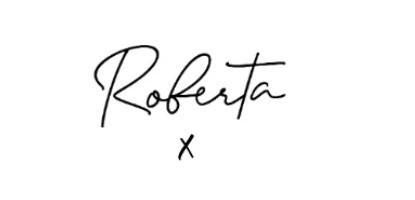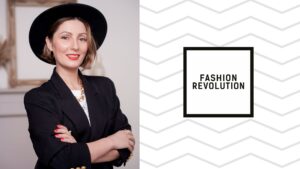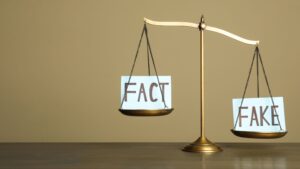Nobody knows if a brand is truly ethical, no brand can claim to be 100% ethical and sustainable either. I always advise that you do your research, and start with what’s most important to YOU to help narrow down what brands are most aligned with what you believe in. Use trusted resources like Ethical Brand Directory and Good on You to help you shop in line with your values. If you’re looking for fully fledged vegan sites then try immaculate vegan, or dress like you give a damn. There is no black and white in the ethical and sustainable fashion space, just multiple shades of grey, despite what some experts say. We need to be mindful of the bigger picture and that’s hard when the fashion industry is so complex, it is tough to judge a brand on what it is or isn’t doing.
I’m often asked how I know if the brand I’m wearing, or working with is ethical. The truth is I can never be 100% certain because it requires the brand to be completely transparent with me. I can only assess them based on what information is available.
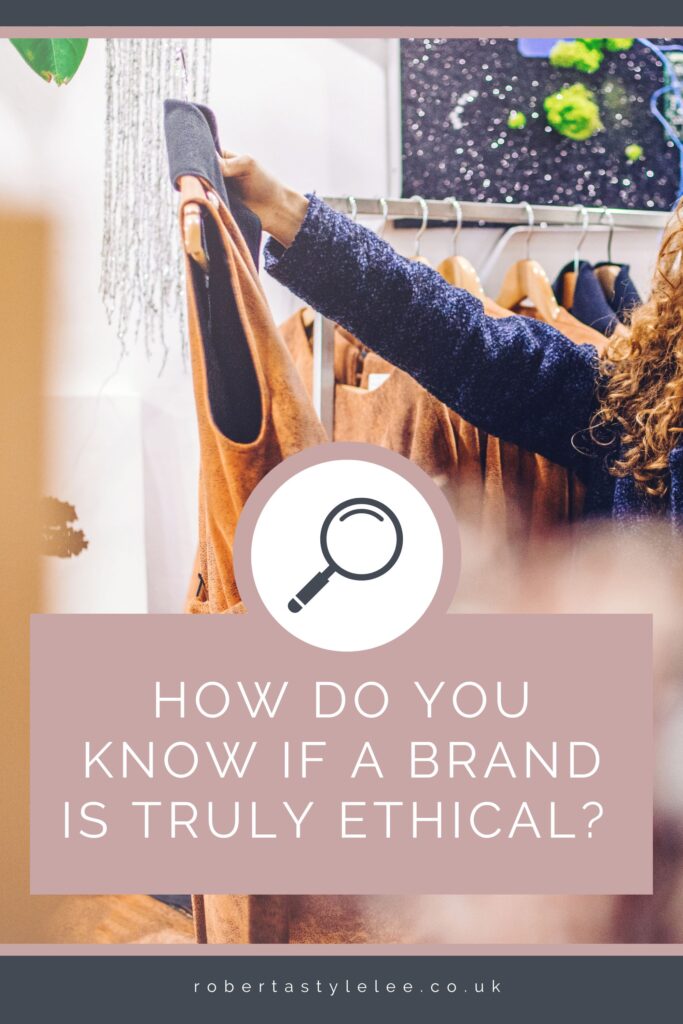
For brands to tick those ethical and sustainability boxes, they need to really know their supply chain, have super strict auditing procedures and have measures in place so that every person and component of their business is accounted for. Many small brands are able to do this, but for most mainstream large brands with complex supply chains, this is much harder, especially if it hasn’t been set up ethically from the start. It’s not impossible for larger brands to track things, it’s a question of whether they are willing to. The bigger the business, the bigger the teams and the more resources they should have available to do the right thing. It comes down to a matter of priorities, people and planet or is their focus just plain profit?
Is greenwashing unethical?
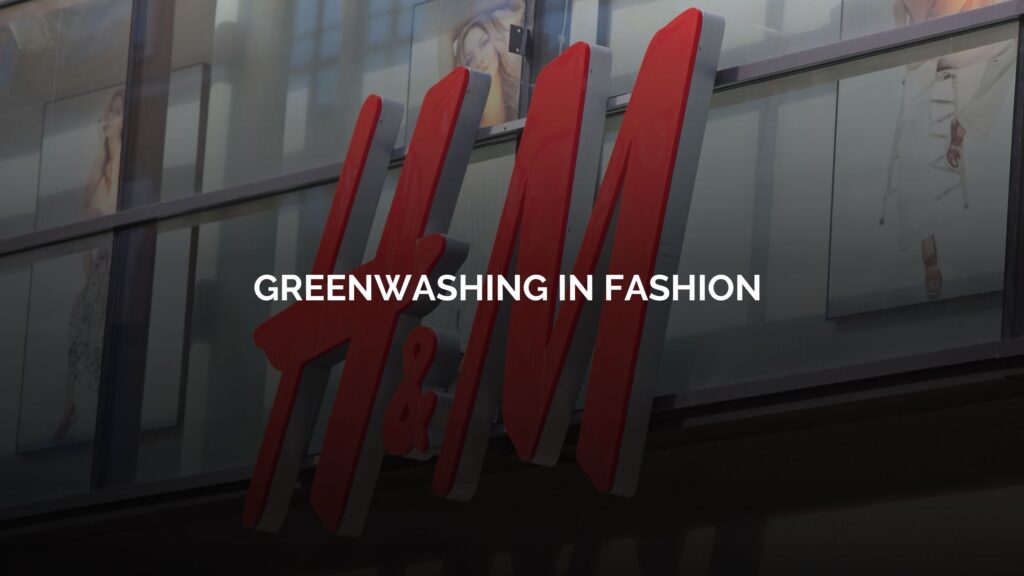
Yes, greenwashing is highly unethical if it’s intentional. One of the most troubling areas under scrutiny in the fashion industry is greenwashing, and there are different levels to greenwashing. Greenwashing is when brands are intentionally vague and non-specific about what they do, use misleading language like ‘more ethical than’, and 30% more sustainable, for example. Take a look at my 5 red flags that a brand is greenwashing blog to see some other tell-tell signs… It’s also important to note that transparency doesn’t mean ‘ethical’ either.
For example, H&M scored really well on the Fashion Transparency Index carried out by Fashion Revolution in 2020, which came as a huge shock to many, but also highlighted tracking and tracing what’s ‘ethical’ and ‘sustainable’ is no easy feat.
If a brand like H&M (a fast-fashion giant) can score in the top 10, despite years of exploitation of its workers documented online, it certainly demonstrates that transparency doesn’t equal ethical. A company can share a lot of information, but also withhold a lot too, and that is often what would skew an opinion on whether they are truly ethical and sustainable. It’s important to note (12 of 2023) H&M are finally being called out on its use of misleading marketing and being sued by the CMA.
What is the most ethical fashion brand?
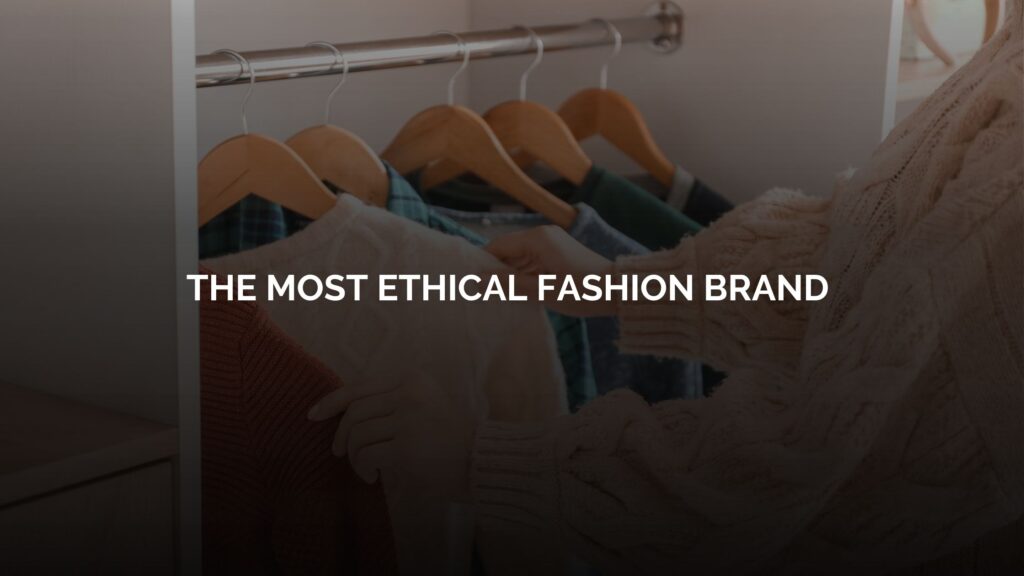
It’s called ‘Your Wardrobe’. And, no it’s not an actual brand, when I say your wardrobe I mean the most ethical and sustainable item is the one you already own. Ethics and sustainability go hand in hand, if you can, consider a repair, re-work or redesign of your existing clothes before seeking something new. After that I recommend supporting brands that create products that have social impact, creating livelihoods for communities, and utilising traditional artisanal skills.
Whilst we tend to focus ethics on the human side of the fashion industry, many now recognise that like animals the planet does not have a voice. It is up to us to consider what being an ethical inhabitant of the planet looks like, and how we can lessen our burden on our home’s natural resources.
Shopping from ethical brands is important because it helps support a positive movement within the fashion industry but it’s also a behaviour we (as consumers) have to moderate. It’s actually unethical to continue to shop excessively and consume fashion at the rate that we do. Consumption is consumption, no matter how we frame it, we all need to work on shopping less.
So yes, the most ethical brand we can shop from is called ‘Your Wardrobe’. I’m trying to be a smart-arse here, but the truth is we need to value the planet more. Purchasing new should be limited and the most ethical thing we can do for our planet is to use more of what we already own. Even Fashion Revolution recognised that we need to address both human and environmental exploitation in the global fashion industry equally, we can’t have one without the other.
Is shopping secondhand clothes more ethical?
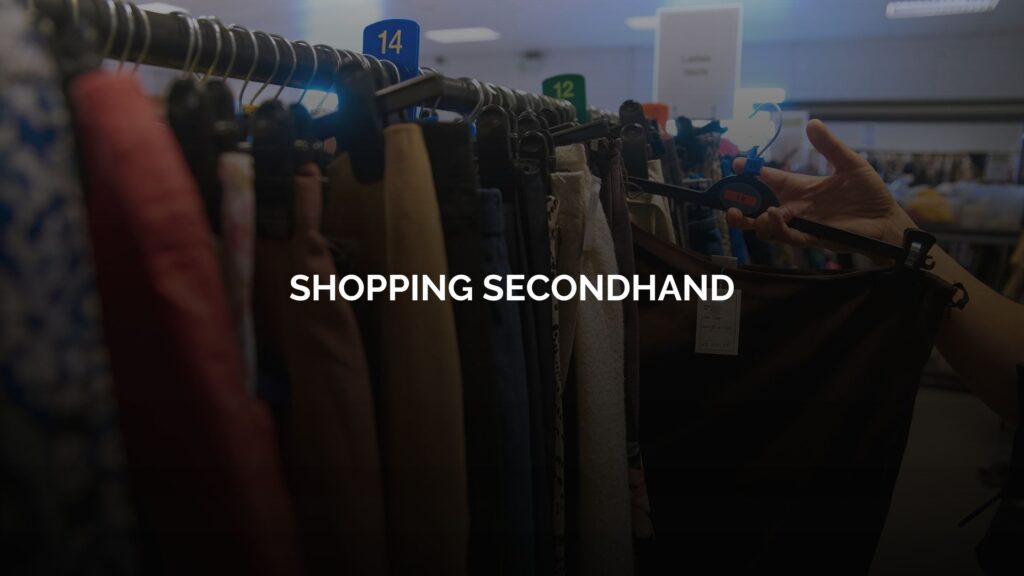
This is where we need to acknowledge a few things, are we are redirecting our love of shopping (and possibly over-consumption) towards the preloved market for the right reasons? Are you still chasing that shopping buzz and seeking new things from charity shops, and clothing swaps or are you strictly shopping for things preloved from ethical brands? If it’s the latter then yes, this is probably the most ethical option of them all.
However availability now becomes the next hurdle, the amount of ethically produced garments that are in the preloved clothing market is few and far between. The secondhand fashion market is dominated by unethical fast-fashion brands.
Supporting charity shops is a great option, because your money is being redirected towards good causes, however, purchasing second-hand fashion doesn’t mean that the garment wasn’t created in unethical conditions in the first place. If you’re OK with that then yes, it’s more ethical from a planetary and resource perspective, but it doesn’t help tackle the poor conditions that many garment workers face within the fashion industry. If this is all new to you, check out Fashion Revolution, their vision is for us to have a global fashion industry that conserves and restores the environment and values people over growth and profit.
By simply leveraging more out of what we already have, through clever styling and not being afraid to outfit repeat, we can dramatically reduce our impact on the planet. For those us in a position to do so, we can then save up and invest our money into key pieces made to last from ethical brands, that support the causes we care about. .
Is renting a more ethical and sustainable option?
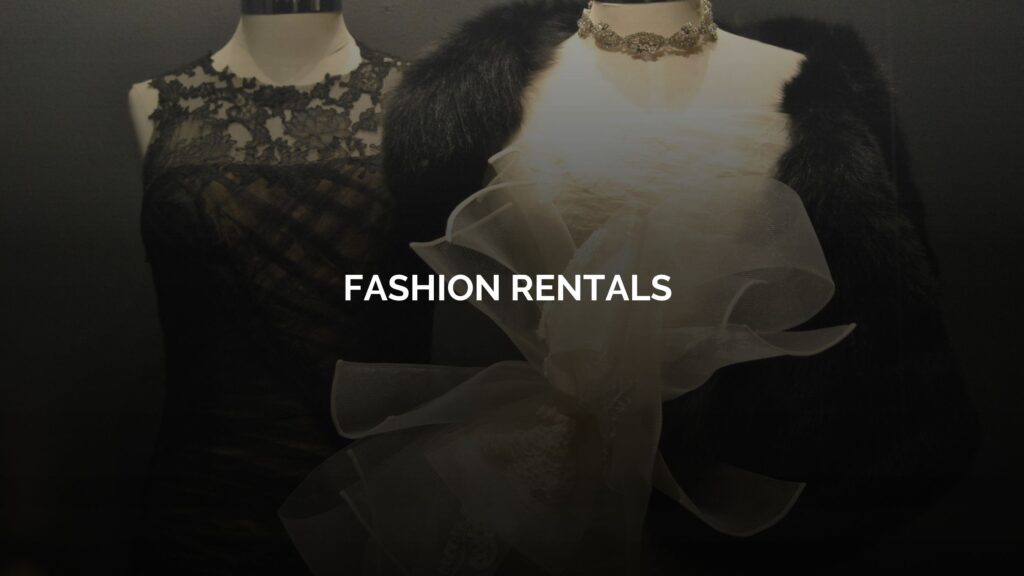
When it comes to the rental market the space is dominated by brands that aren’t considered ethical. Rental is certainly more sustainable for acquiring special outfits rather than purchasing something only to be worn once and abandoned to the back of the wardrobe.
When we shop online we often forget about the shipping and packaging, for rentals, again if we are using apps and websites, we need to factor in shipping, returns, and dry cleaning. So whilst renting clothes is far ‘better’ than wasteful purchases, rental certainly isn’t the answer for ethical and sustainable fashion.
To rent or not to rent, that is the question!
Renting is an excellent option, for occasional use. Nobody is perfect and we all succumb to something ‘new’ sooner or later. I recommend you rent from rental platforms like My Wardrobe HQ which also sells many of the items that are available for rent. So if you do fall in love, then you can buy the item and get the rental cost deducted from your purchase (this used to be the case a few years ago!).
Try and support renting from the smaller independent brands where you can. Many small indie brands are turning to rental platforms like Loanhood to get their pieces out there, it’s a great way to support emerging designers and try out new looks for festivals and events where you want a standout look.
Check out 7 of the best places to rent clothing here.
Can a brand can lie about being ethical and sustainable?
Yes, big brands and little brands can all lie. The nature of the internet and the global market has made it much easier for businesses to hide behind clever lies and orchestrate deceitful distractions. Even recognised certifications can be scrutinised… it was revealed in 2020 that the Better Cotton Initiative, known as BCI was linked to the Xinjiang region of China with widespread media allegations of forced labour in the region. BCI has been a popular certification used by fast-fashion brands like H&M and Primark.
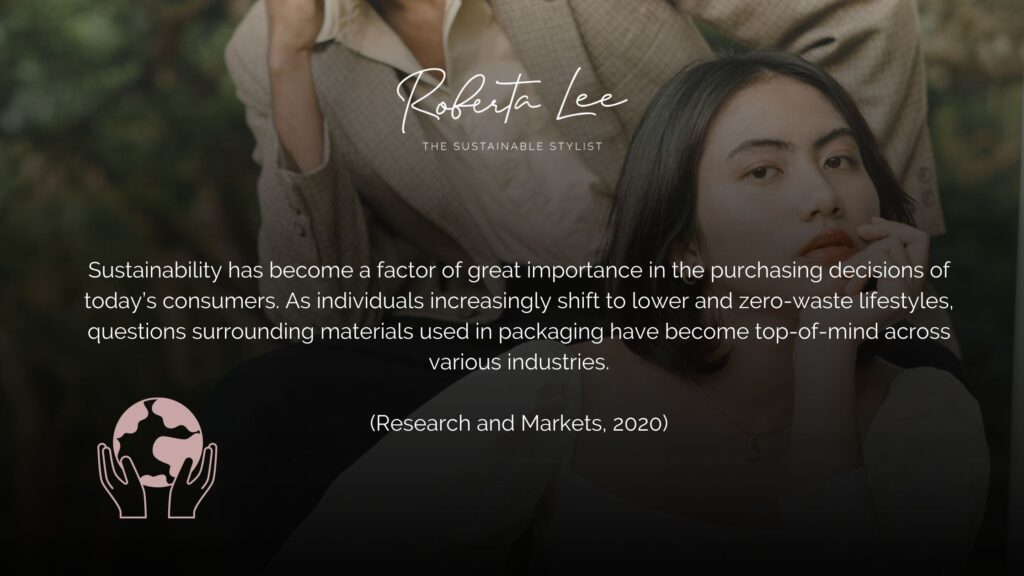
Another sign to look out for is lots of promises but no fixed dates or deadlines for making improvements, or evidence of any actions that support the sustainable development goals on their website. When a brand doesn’t highlight what they are NOT doing and areas they want to work on, I question it. No brand is 100% ethical and sustainable. So if they make that claim, they are, that’s a big red flag for me. Always obtain more information about how they operate ethically and sustainably. Don’t be duped by the #SupportingSmallBusiness campaigns, because a lot of small business owners still straddle the line of operating in an unethical fashion playground. When the bottom line is concerned many small businesses still opt for the fasting shipments and cheapest costs, and may not even consider ethical practices in their supply chain, or how unsustainable the manufacturing production, or shopping is.
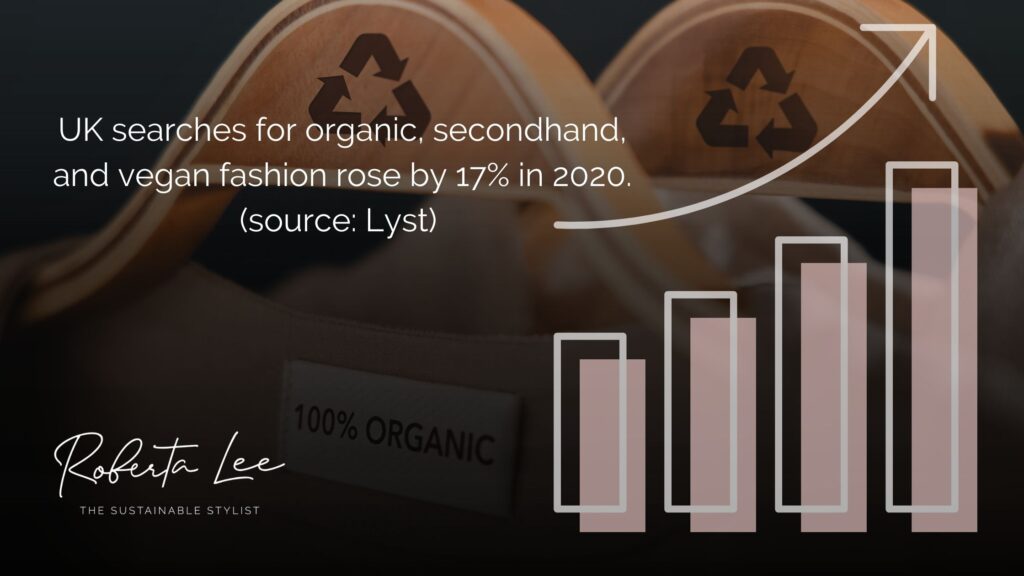
If you’re curious about the laws and regulation around businesses lying about what they do, check out the CMA website. They are focused on greenwashing and clamping down on misdirection and misleading information being shared with consumers for financial gain by businesses. H&M are currently being sued for false and misleading marketing.
How do you assess if a brand is ethical?
Well, first of all you need to understand what my definition of ethical is at Roberta Style Lee and Ethical Brand Directory. Because that’s how I assess things.
Ethics means something different to us all. – and I respect that my view is not the only view. At Ethical Brand Directory, we define ‘ethics’ as our moral compass. This means acting with integrity and respect adhering to actions (not just words) that protect:
Human Rights
Labour Laws
Anti-Corruption
The Environment
ethicalbranddirectory.com/ethics/
Considerations when assessing a brand’s ethical credentials
- Ethical practices
- Diversity
- Welfare of workers across the supply chain
- Clear communication across their website
- Measurable sustainability efforts
- Size of the business Vs actions being taken
- Reporting against the SDGs
- Overall honesty about areas that could be improved upon.
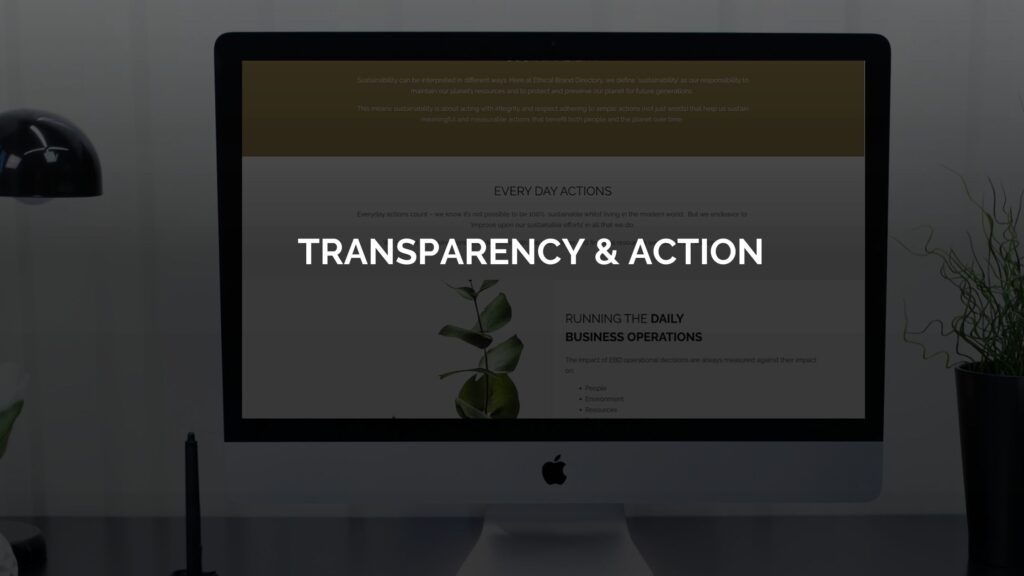
I also interview any brand that wishes to join Ethical Brand Directory, it gives the founder or CEO, or brand representative the opportunity to be honest about the way they manage their business, what’s not working, and where the struggles are. My decision is based on the interview, what information they choose to share on their website, and the answers and scores give on their application form. You’d be surprised how many brands don’t get than 20% and how many I turn away.
A good indication if a brand calls for further investigation is it that makes claims of being ethical or sustainable but doesn’t say how, or what certifications they have. They just throw in a bunch of keywords and make vague statements about being ethical or sustainable without substantiating any of it.
Can leather ever be ethical?
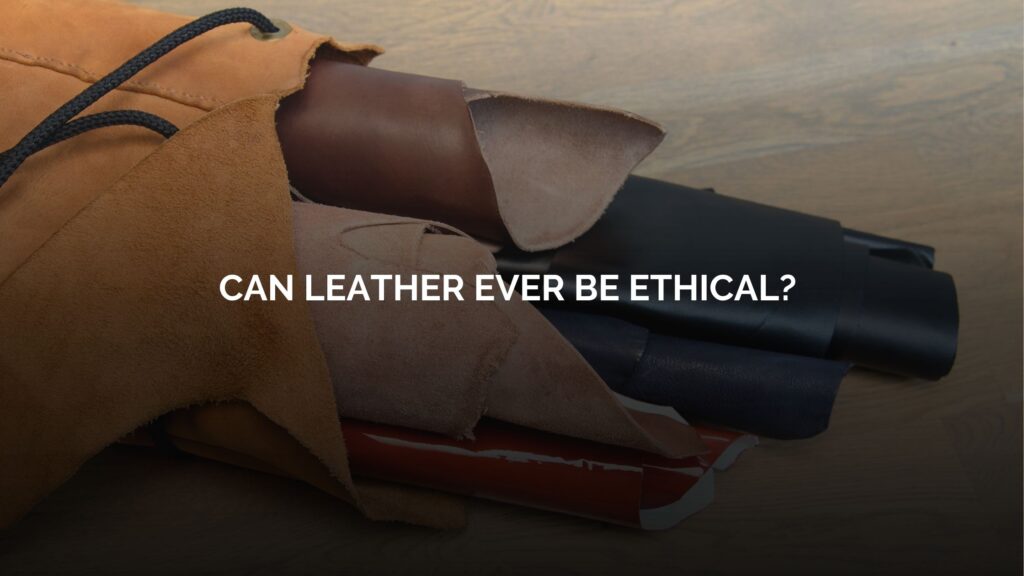
I don’t think leather as a material is ethical, but I do think that wasting it is unsustainable. Although, if you’re a vegan, you may disagree with my thoughts on the use of vintage, leather waste, ethically sourced and eco-friendly treatment of leather. I find this topic really divides the room, and I welcome your constructive comments and points of view. I would love to live in a world where no animal is reared for the primary purpose of slaughter for human consumption, but until the world is vegetarian – unfortunately there will be a lot of leather as a co-product / by-product of the meat industry until stricter laws are in place for protecting animals that are typically reared for food. It feels slightly heartless for me to say this, but it is not intended to be, waste is only waste when we waste it. We are living on a planet with finite resources and we just cannot afford to be wasteful. This doesn’t make the barbaric treatment of any battery farmed animals for food any less traumatising, I totally get why vegans cannot separate the welfare of animals, sustainability and zero waste.
The creation of anything new puts stress on our planet, even the creation of new vegan-friendly materials (which I am all for) still uses natural resources. This article ‘How Guilty Should You Feel About Wearing Leather?’ is a great read and echos a lot of my own thoughts. I don’t actively seek out new leather products, but I do buy preloved and vintage. It’s a personal choice, but I can accept responsibly sourced leather (that is considered a by-product especially when there’s some level of traceability) that has been treated with eco-friendly chemicals and chrome free dyes.
Is the prevention of waste ethical?
The most sustainable option in fashion, food, and well all industries is to make better use of everything that already exists. When it comes to fashion, creating new resources, particularly vegan alternatives (whilst I am a fan) still comes with an environmental footprint. There is no real winner when it comes comparing the impact of newly created materials Vs utilisation of existing materials such as leather. It’s really a personal judgment call on whether you can accept wearing animal leather, or not. I don’t actively seek out NEW leather products, but I will accept responsibly sourced leather that is tanned using eco-friendly dyes.
Is silk and wool ethical?
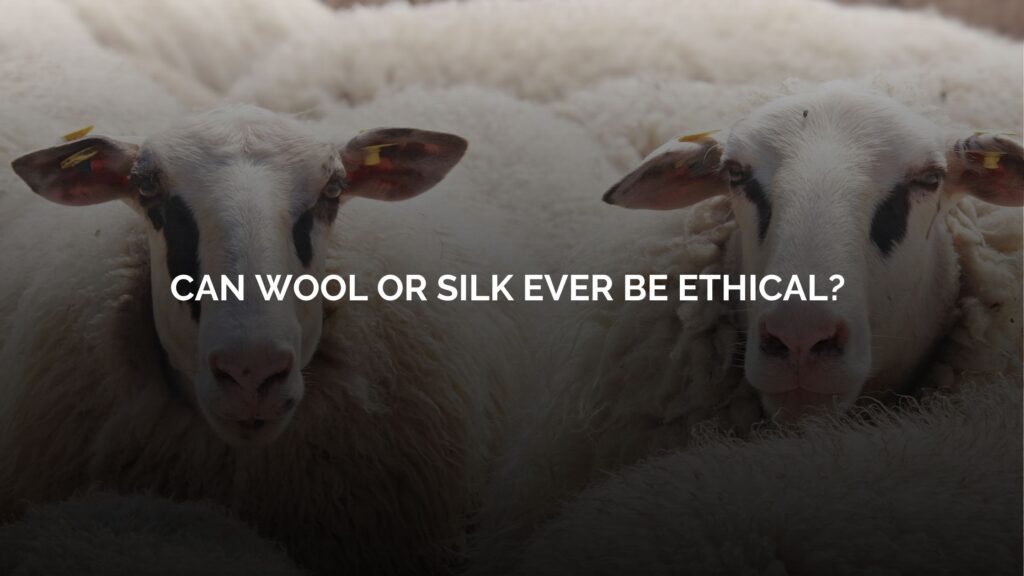
Then of course we have the next divide, can a brand be called ethical if they treat their workers well, pay above a living wage and look after their wellbeing, use fairtrade suppliers, and carry out regular audits of factories to ensure no slave labour exits – but uses leather, silk or wool?
Again it’s really a personal judgment call, for a brand to be considered ethical we might need to determine the scope of how it looks after its people, that it does not test on animals or engage in animal cruelty, and that it doesn’t pollute the planet. It’s a personal choice on whether you can accept peace silk or wool that can be fully traced and responsibly sourced, or not.
Then there are brands who only use deadstock materials, which may include, leather, silk and wool – yet they cannot trace the origins. I fully support this option because of the overflowing problem with deadstock materials, and I truly believe that since the last IPCC report, that we cannot keep looking to create ‘new’ as it puts an unnecessary burden on the planet.
Assessment criteria for Ethical Brands

You want to look for evidence good ethical practice is upheld across the supply chain and all workers are paid a fair living wage, and are able to do their work in safe, comfortable working conditions without any forced labour, fear, threats or intimidation. They should be able to be part of a union and respected for the work they perform, given adequate breaks and be able to take time off to be with their families. If you’re a vegan your criteria will likely be much stricter and extend itself to materials and the levels of scrutiny will be much more detailed.
How do we find that out? Brands that know how to communicate their impact will have clear pages on their website highlight their ethics policy, workers welfare and living wage, pages that outline their sustainability efforts, targets and many will show which of the SDGs they are working towards with clear KPIs in place. A great example of a small brand that communicates what it’s doing is Jenerous.
If a brand is vegan, it will be quick to identify with that and vegan labelling will be very prominent. Make sure you understand all the different vegan certifications, and the difference between cruelty-free and vegan. Check out this handy guide on The Vegan Review.
What does an unethical brand look like?
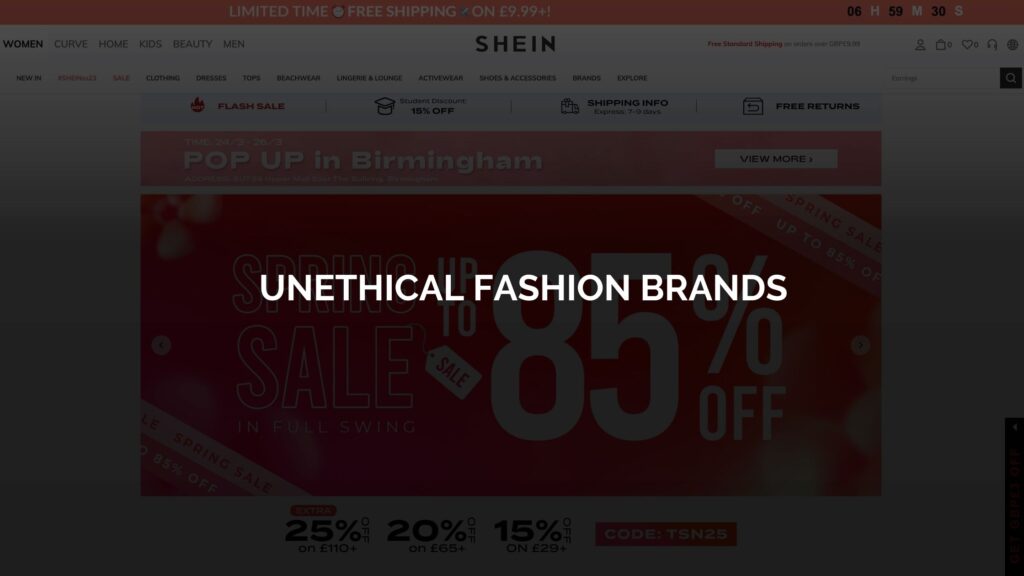
It sounds like a given, but many countries lack the same working welfare conditions as many of us in developed countries. Even then, worker welfare is not a given, the US and UK have both been under fire for sweatshop working conditions which we would all like to believe was resolved in the ’90s. More recently China has been in the spotlight due to the ultra-fast-fashion brand Shein being exposed in the documentary Untold: Inside the Shein Machine. This revealed that factory workers were having to work up to 18 hours a day, no weekends off, just 1 day off a month and for a shocking remuneration of 3p an item.
Being ethical means looking after mother earth as well, and this is often confused with being sustainable. This is why large brands like H&M and Zara can never be considered ‘ethical’ brands, nor can they claim to be sustainable, as their business models are designed to exploit, take, profit and take more than they can ever give back.
When it comes to our natural resources, production, and waste at the scale fast-fashion giants generate it, means it’s just not possible for the planet to recover if we continue at this rate. Therefore, running a sustainable business model is directly linked to being an ‘ethical brand’ and whether the ethical criteria you choose to use extends to the stricter criteria of being a vegan, that’s down to you to decide. And that’s why I don’t judge people. As I mentioned the ethical and sustainable fashion playground isn’t black and white. No brand, or person can tick all of the boxes, so this is why it’s essential to get clear on your personal values, and do what is right for you. Wear your values, and be proud of your clothing choices.
Finding ethical brands
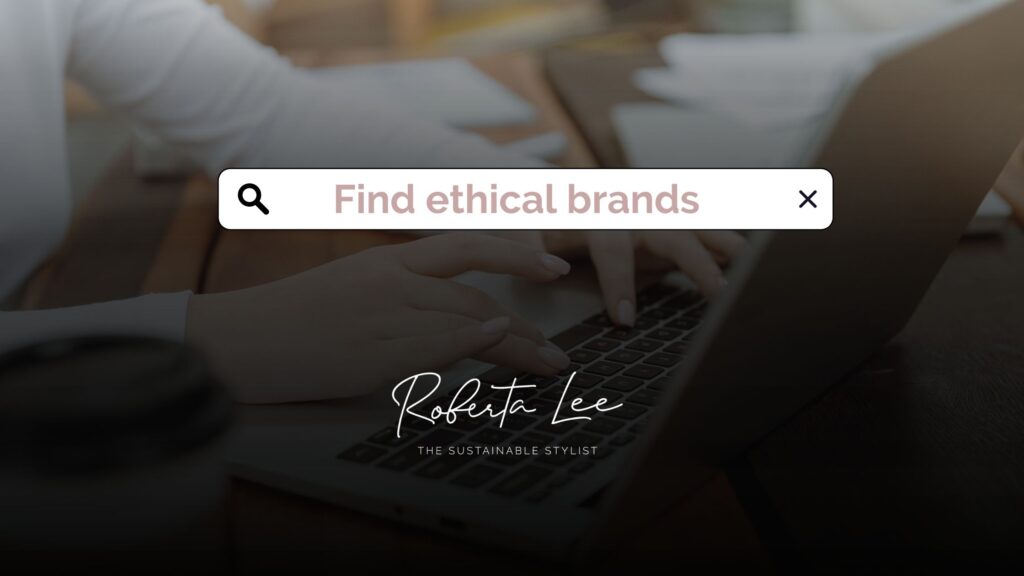
We all have our own set of values and reasons for believing in them. Ethical Brand Directory (EBD) will continue to be an inclusive platform for brands, which includes brands who use leather as well as those who are vegan.
If you want to explore a curated collection of brands that all have their stories to tell, with their own mission to change the industry, head on over to EBD and see what brands are aligned with your and values.
For more information on where I chose to shop and what brands I personally wear, hop on over to my Stylists Picks page or check out my style diary where I showcase my ‘mostly’ preloved and ethical outfits of the day.
